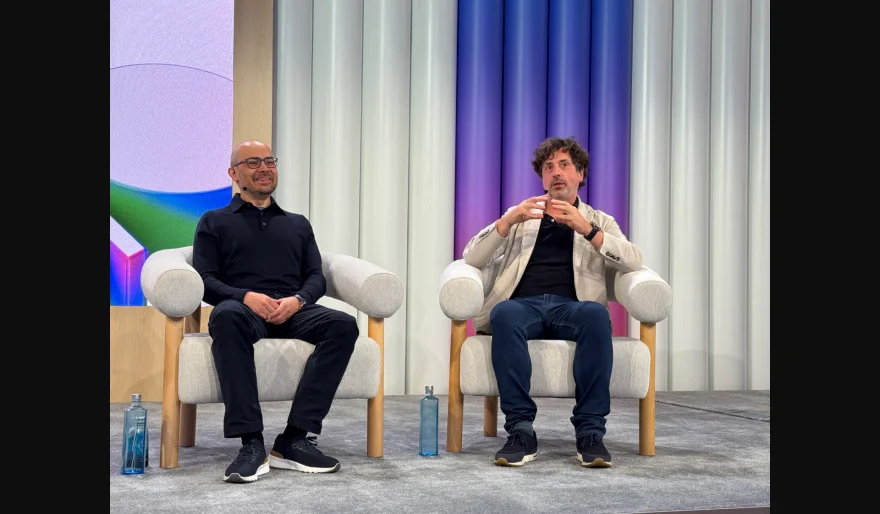Stay Ahead of the Curve
Latest AI news, expert analysis, bold opinions, and key trends — delivered to your inbox.
Sergey Brin Reflects on Google Glass Missteps as Google Unveils Next-Gen Smart Glasses at I/O 2025
5 min read At Google I/O 2025, Sergey Brin acknowledged past failures with Google Glass and praised the company’s new AI-driven smart glasses powered by Project Astra. With partners like Samsung and Warby Parker, Google aims to make smart, multimodal wearables mainstream — signaling a major shift as AI moves off screens and into the real world. May 21, 2025 10:30
In a surprise appearance at Google I/O 2025, Google co-founder Sergey Brin made a rare public admission: “I made a lot of mistakes with Google Glass.” The comments came during an onstage conversation with DeepMind CEO Demis Hassabis, where Brin reflected on the failure of one of Google’s most ambitious — and controversial — moonshots.
Brin candidly acknowledged he underestimated the complexity of building consumer hardware. “I didn’t know anything about consumer electronics supply chains,” he admitted, referring to Glass’s high price tag and limited functionality. Despite its flop, Brin remains optimistic about the potential of smart glasses, calling the form factor “compelling,” and voicing support for Google’s renewed push — this time with experienced hardware partners.
Earlier that day, Google revealed a new generation of Android XR smart glasses, powered by DeepMind’s Project Astra. The glasses demonstrated real-time AI capabilities such as live translation, spatial understanding, and contextual queries — powered by recent breakthroughs in multimodal AI.
This rebooted smart glasses effort isn’t just a product play — it’s a strategic statement. Google has partnered with companies like Samsung, Xreal, and Warby Parker (in which it has taken an equity stake and pledged $150 million), to ensure both technical credibility and market readiness. It’s a clear signal that Google is serious about wearable AI — and about learning from its past.
Why It Matters to the AI Community
Brin’s return and Google’s renewed investment in smart glasses mark a pivotal moment for the AI community. For years, AI has been largely screen-bound — text interfaces, chatbots, code assistants. With Project Astra and multimodal agents baked into hardware, AI is moving off the screen and into the physical world. The dream of seamless, real-time, ambient intelligence — once futuristic — is now in prototyping.
Smart glasses are shaping up to be one of the first real-world testbeds for agentic AI systems: models that can see, hear, understand context, and act. The integration of LLMs with AR interfaces suggests a new era of hands-free, voice-first computing — one where AI isn’t just reactive, but actively helpful in real-time, physical spaces.
Brin’s involvement also underscores a broader truth: even tech’s founding figures see AI as the defining force of this era. “Anyone who’s a computer scientist should not be retired right now,” Brin said. “They should be working on AI.”
The implications for the AI community are significant. As AI increasingly interfaces with the physical world — through devices like smart glasses — the challenges of real-time perception, alignment, and safety take center stage. This isn't just about wearable tech; it’s about building AI systems that are socially intelligent, spatially aware, and deeply embedded in everyday life.
The resurgence of smart glasses — and the cautionary lessons of Google Glass — offer a timely reminder: bold ideas need smart execution. And in AI’s next chapter, it’s not enough to innovate. You have to deliver.



















 AI Agents
AI Agents